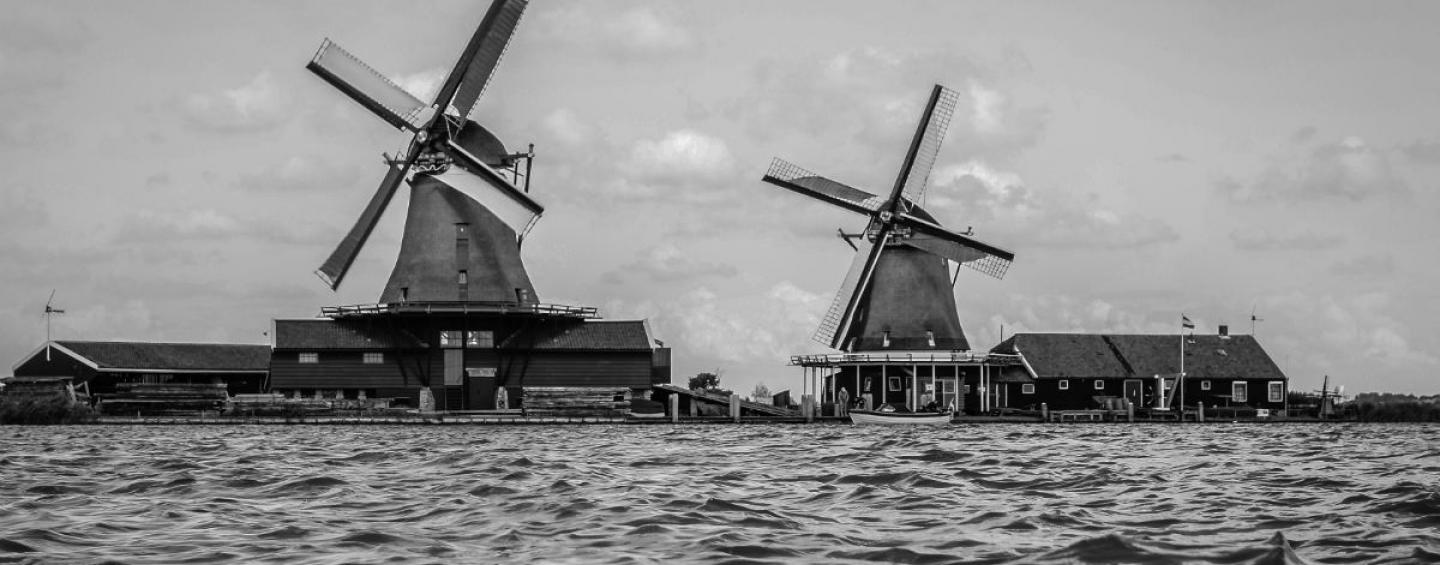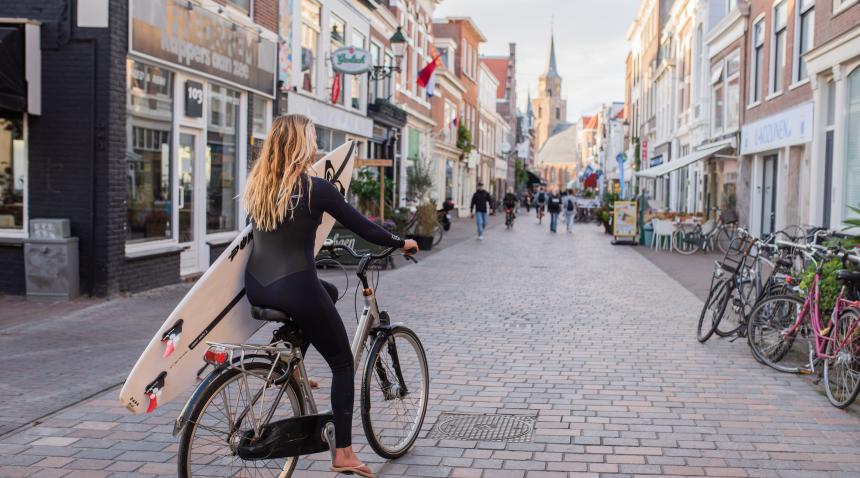
History of the Netherlands
The Netherlands is a small country with great deeds. Our country has known hardships, but has always managed to learn and grow from it. Values such as tolerance and entrepreneurship have remained important throughout Dutch history. Learn more about the Netherlands as we outline our history from the 16th century.
Roman and Frankish era
The first records of the Netherlands date back to the four centuries (55 BC – 410 AD) during which the region was a part of the Roman empire. When the Romans got weaker, Germanic tribes started to invade the land. The Franks, the most powerful tribe, invaded the territory in the 5th century. It was until the 9th century that the Netherlands was a part of the powerful Franks Empire of Charlemagne.
The Dutch Revolt
After the fall of the Charlemagne Empire, the Dutch territory had been divided into several smaller states – ruled by dukes and counts. In 1555, Charles of the Habsburg dynasty granted the Netherlands to his son, Philip II, king of Spain. Philip II, a Catholic, took strong measures against Protestantism. This form of Christianity polarized the peoples of present-day Belgium and Holland.
The subsequent Dutch revolt and the Eighty Years’ War led to splitting the Netherlands into a Catholic French and Dutch-speaking ‘Spanish Netherlands’ (approximately corresponding to modern Belgium and Luxembourg), and a northern ‘United Provinces’, which spoke Dutch and were predominantly Protestant. It was during this war that the feeling of national identity developed in the Netherlands.
The Treaty of Munster, which took place in 1648, officially ended the war between the Netherlands and Spain. Recognized by Spain as the Dutch Republic, The Netherlands had its sovereignty at last.
The Golden Age
In the Dutch Golden Age (during the 17th century) there was a flowering of trade, industry, the arts and the sciences. Amsterdam became the centre of a massive trade market and shipbuilding. Thanks to its intellectual tolerance, scientists, mathematicians, and intellects from all over the world flocked to the Netherlands. The Dutch continued expansion on the seas and discoveries of the new routes and lands. A rich worldwide Dutch empire developed, and the Dutch East India Company became one of the earliest and most important of national mercantile companies based on entrepreneurship and trade.
From Kingdom to Parliamentary Democracy
During the 18th century the power and wealth of the Netherlands declined. A series of wars with their more powerful British and French neighbours weakened it. Eventually, Napoleon’s forces invaded the country and ended the Dutch Republic. After the fall of Napoleon in the beginning of the 19th century, The Kingdom of the Netherlands was created. The kingdom was ruled by the House of Orange. In the following years, Belgium and Luxemburg gained independence. After an initially conservative period, the country became a parliamentary democracy with a constitutional monarch in 1848.
World Wars I and II
While neutral in World War I, the Netherlands was invaded and occupied by Nazi Germany during World War II. The Nazis prosecuted almost all the Jews (most famously Anne Frank). When the Dutch resistance increased, the Nazis cut off food supplies to much of the country, causing severe starvation in 1944–45. After 5 long years, the Netherlands was finally liberated by the Allies Forces.
An Era of Peace and Prosperity
After the difficult years of reconstruction directly after the WWII, the Dutch have known a continuous and fast economic growth in the second half of the 20th century. By initiating international cooperation within alliances with Belgium and Luxembourg, and later the European Union and the NATO, an era of peace and prosperity followed. Today, the Netherlands is one of the most developed and wealthiest countries in the world.
Today, The Hague holds many opportunities to develop and mobilize international talent, career and business opportunities. Find out more on why invest in The Hague, setting up your business and working in The Hague.



